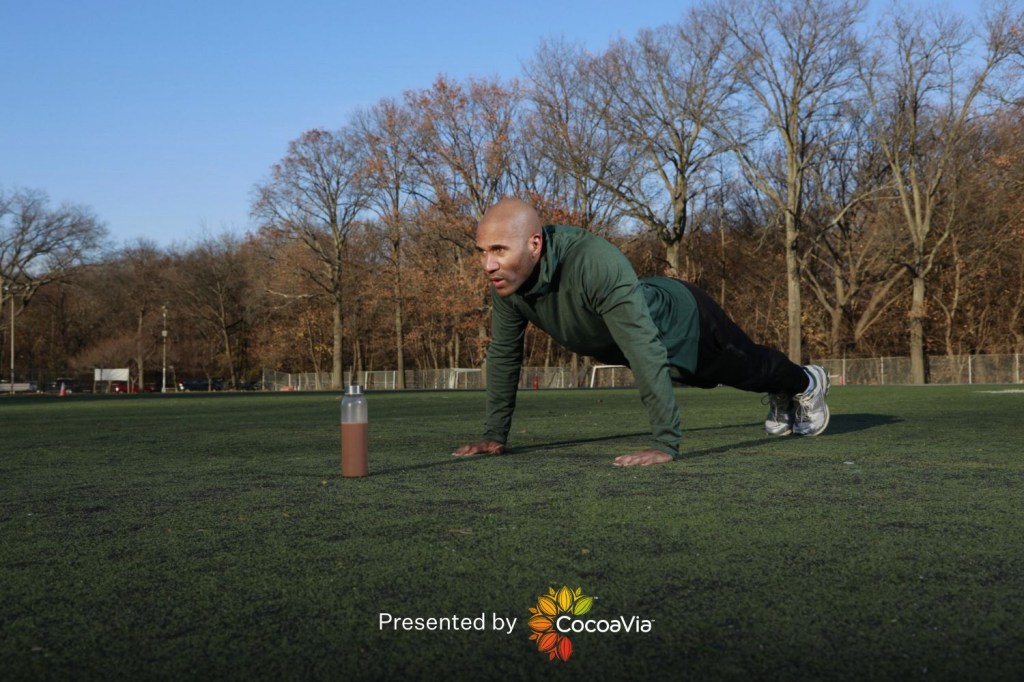Earnings season is upon us and I am … exhausted. But no rest for the weary, and Apple and Facebook were certainly anything but weary this week.
Apple benefited greatly from prolonged work and learning from home trends (pushing individuals to purchase high-ticket personal computers) as overall revenue grew 36% year over year. Facebook similarly saw its highest growth numbers since 2016 as overall revenues grew 56% year over year, bolstered in large part by increased ad revenues and some of its “other” revenue streams including consumer hardware (looking at you Oculus).
With news of a potential integration between the Oculus hardware and Apple Health, both companies have made the path toward a future rooted in health and fitness clearer.
Apple and Facebook’s Explosive Earnings
I would be remiss if I didn’t start this piece by looking at the numbers coming out of earnings season. Even though Apple and Facebook both beat essentially all of the Wall Street estimates, the stocks still traded down after the respective reports were released, indicating that while the results this quarter were staggering, executives were able to temper expectations for the coming fiscal quarters.
Here were the key takeaways:
Apple:
- Revenue: $81.41 billion vs. $73.30 billion Street estimates, up 36% YoY
- Gross margin: 43.3% vs. 41.9% Street estimates
- iPhone revenue: $39.57 billion vs. $34.01 billion Street estimates, up 49.78% YoY
- Mac revenue: $8.24 billion vs. $8.07 billion Street estimates, up 16% YoY
- Other Products revenue: $8.76 billion vs. $7.80 billion Street estimates, up 40% YoY (36% for wearables specifically)
Within the “other” category falls wearables — the segment that houses the Apple Watch. The growth in the category further expands the potential market for Apple to build out the extensive capabilities of its Apple Health app, which has been an area of focus since its introduction in 2014.
The original suite of Apple health and wellness products has expanded to include heart rate monitoring, activity tracking, fall detection, gait tracking (how you walk), an electrocardiogram to detect heart irregularities, and, perhaps most importantly, an integrated API that allows third party apps to utilize its data. With continued growth in its wearables space, the company can and will continue to make strides with its Apple Fitness+ and Apple Health properties.
Facebook:
- Revenue: $29.08 billion vs. $27.89 billion Street estimates
- Daily active users (DAUs): 1.91 billion vs. 1.91 billion Street estimates
- Monthly active users: 2.90 billion vs. 2.91 billion Street estimates
- Average revenue per user: $10.12 vs. $9.66 Street estimates
While Facebook saw impressive growth in all areas except its DAUs, the talk of the Street was dominated by CEO Mark Zuckerberg’s use of the hottest word in technology: “metaverse.”
Zuckerberg has big plans for the concept. “In the coming years, I expect people will transition from seeing us primarily as a social media company to seeing us as a metaverse company,” he said. “In many ways, the metaverse is the ultimate expression of social technology.”
On the VR theme, the company rolled out Oculus Move, a program that tracks physical activity across Oculus apps and games, in November. This, in conjunction with its deal signing Overtime to produce custom home workout videos, shows that fitness will indeed be a key component within the construction of Zuckerberg’s metaverse ambitions.
While iPhones and targeted ads are the core revenue generating activities for Apple and Facebook respectively, health and wellness have quickly crept to the forefront as the revolution in biometric data and wearable technology has come to fruition. Furthermore, the health front might finally provide for common ground between the two companies. As public health becomes more and more personalized and to an extent commercialized, Apple and Facebook have the potential to collaborate on something truly special – a gamified universe centered around health.
The Great Feud
Before the kumbaya, however, it is important to note one of the main roadblocks in an Apple and Facebook health and fitness collaboration. The issue at hand is that the two companies … simply don’t get along.
While the companies are inexorably tied given their inclusion in the immortalized “FAANG” (Facebook, Amazon, Apple, Netflix, Google) super club, the two tech behemoths have not always been exactly cordial. This is due in large part to their business models.
Privacy is the “buzzword” of note when setting the stage for the proverbial beef between the two companies.
Apple drives a disproportionate amount of its revenues from selling products to its customers while Facebook (as we all know) is in the business of selling targeted online advertisements. This antithetical approach to their respective business models has led to animosity — culminating most recently in the disputes over the great privacy debate currently plaguing the tech world.
In April, Apple released an update for its product suite that could spell doomsday for companies who derive revenues from advertising. The new iOS 14.5 operating system put control back into the hands of users. The update now requires that app developers explicitly ask for permission to track users’ behavior across Apple’s App Store and the internet, which was previously not the case. This change targets Facebook’s business strategy directly. The company has spent over a decade building technology to become the best in the business at targeting advertising — whether users know it or not.
The dispute has become an ethical one, with Apple purporting that user privacy is a fundamental right. Facebook, on the other hand, believes that the ability to utilize user data to help small businesses grow and thrive is equally paramount.
One area, however, where the two might be able to find common ground is on the health and wellness front.
As reported by Bloomberg on Monday of this week, Facebook is considering letting users synchronize workout data from its Oculus headsets with Apple’s health app on iPhones. The story was confirmed by examining the Oculus iPhone app code.
Health and Wellness Initiatives
Big tech companies, particularly Facebook and Apple, have made significant investments within the wellness and fitness spaces. It feels as though the likes of Fitbit, Whoop, and Oura have all made it such that wearable devices now require a baseline amount of biometric data tracking capabilities.
In February, it was reported that Facebook would be introducing its own wearable (likely a watch) health tracker. Looking at Facebook’s core business model, the need for a hardware wearable device might be strange but in the big picture it does fit into the company’s overall ecosystem. Wearables promote engagement, a key feature for any company with “social” as part of its core product offering.
In addition to its potential foray into wearable technology, Facebook has been busy on the health front:
- In 2016, it hired Freddy Abnousi, a Stanford professor and cardiologist, as the company’s head of health technology.
- In 2019, the company introduced a preventative health feature that recommended users to get annual checkups based on age demographics.
- In 2019, it launched a demographic-based disease tracking tool which ultimately (in partnership with Carnegie Mellon) was used to track COVID-19 spread.
- As of 2020, Facebook Reality Labs is working on a noninvasive brain-computer interface that aims to translate imagined commands to a device. (Wild, I know!)
Apple has been steadily chipping away at the health space since early 2014.
As previously described, the company began with the Apple Watch and Health app and since then has expanded its capabilities far beyond that of a simple pedometer. Of note, the Apple health ecosystem has entirely embraced the idea of “community.” Apple iOS 15 will introduce the ability to share health data with selected users such as family members and primary care physicians.
Apple CEO Tim Cook was recently quoted stating, “If you zoom out into the future and you look back and you ask the question, ‘What was Apple’s greatest contribution to mankind?’ — it will be about health.”
Whether it’s health, fitness, or even the metaverse, it seems as though the two companies are on a potential collision course of aligned incentives.
Apple and Oculus Integration
And now the integration aspect might potentially finally be here.
The revelation that Oculus could integrate with Apple health data points not only to a continued trend but also a potential inflection point when it comes to the relationship between gaming, health, and virtual reality.
While Apple Health has become a daily tool in many Apple users’ routines, a fresh appeal comes with the ability to “level up” by strapping on one of Zuckerberg’s “2001: A Space Odyssey”-style headsets and watching calories burn in real-time while playing VR games.
The marriage of the two companies’ newest competencies shows a certain level of consensus on one thing — the convergence of gaming and health. Peloton has sights set on the gamification sphere, too. The technology, fitness, and gaming triumvirate is coming, and the world’s largest technology companies are leaning in.
While the Oculus collaboration has not yet been acted upon and merely lives in the code base, a new world of biometric-driven gaming could be ahead for all of us. The opportunity may be so promising that even Apple and Facebook can finally agree on something.
















